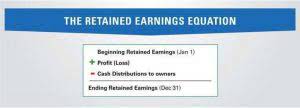
Estimated payments are due on April 15th, June 15th, September 15th, and January 15th of the following year. Penalties for insufficient estimated payments are calculated based on the amount and duration of underpayment. Failure to meet Illinois income tax obligations results in penalties for late filing and payment. The late filing penalty is 2% of the tax due per month, up to 20%, while the late payment penalty starts at 2% for the first month, up to 15%.
- While this system offers simplicity and predictability, it does not provide the progressive taxation found in other states.
- The Federal Income Tax, in contrast to the Illinois income tax, has multiple tax brackets with varied bracket width for single or joint filers.
- A bigger paycheck may seem enticing, but smaller, more frequent paychecks can make it easier to budget without coming up short by the end of the month.
- To be sure you’re paying the correct amount and utilizing any exemptions or deductions you could be qualified for, it’s also a good idea to see a tax professional or use tax preparation tools.
- The three categories are qualifying food and drugs, vehicles and general merchandise.
- Enter your annual income, filing status, and optional deductions to estimate your Illinois state income tax, federal tax, FICA, and Medicare contributions for 2026.
- The current corporate tax rates have been in effect since 1994 (unlike the federal income tax brackets, which are updated yearly for inflation).
Statistics and Analysis Calculators
From there, certain items may be added back in, and others may be subtracted. Among the most important items that are taxable federally but not in Illinois are retirement and Social Security income, as well as distributions from a 529 college savings plan. A tax credit allows taxpayers to reduce the amount of taxes they are required to pay. This is different from a tax deduction, which reduces the amount of income that is subject to taxation. Tax credits are applied directly to the tax liability, while deductions are applied to the taxable income. If you’re a resident of Chicago, your primary concern for income taxes will be the state’s flat income tax rate, which is levied by the state of Illinois.
How Chicago, Illinois Residents Are Taxed on Ordinary Income
For Debt to Asset Ratio anyone looking to reduce their tax liabilities, it’s crucial to seek professional tax advice tailored to your specific situation. Recent policy changes in Illinois have had a significant impact on state income tax rates. In 2021, Illinois passed a bill that increased the state’s flat income tax rate from 4.95% to 4.99%.
How accurate is the Illinois paycheck calculator?

A financial advisor can help you handle all your tax queries and ensure you’re not paying more tax than needed. Recent research revealed that the average Illinois family pays roughly $14,778 in annual taxes, compared to just $3,438 in Wyoming. If you’re considering life in Illinois, it’s essential to understand all the costs involved.
Income Tax Rate
The 2022 tax rates and thresholds for both the Illinois State Tax Tables and Federal Tax Tables are comprehensively integrated into the Illinois Tax Calculator for 2022. This tool is freely available and is designed to help you accurately estimate your 2023 tax return. Illinois provides a standard Personal Exemption tax deduction of $ 2,425.00 in 2022 per qualifying filer and qualifying dependent(s), this is used to reduce the amount of income that is subject to tax in 2022. Compared to other American cities, Chicago has a very high sales tax. Illinois has a 6.25% basic sales tax rate; Chicago adds municipal taxes to bring it up to a higher level. Including restaurants, retail goods, and some services, this affects almost every consumer purchase.
What kind of businesses have to pay the Illinois corporate income tax?
The Tax tables below include the tax rates, thresholds and allowances included in the Illinois Tax Calculator 2024. This means that no matter how much money you make, you pay that same rate. Sales and property taxes in Illinois are among the highest in the nation. An inheritance tax is imposed on the beneficiaries of an estate based on their relationship to the deceased and the illinois state income tax rate amount they inherit. In Illinois, the inheritance tax rates vary depending on the beneficiary’s relationship to the deceased. For example, spouses, children, stepchildren, and parents are classified as Class A beneficiaries and are not subject to any tax.

Is there a personal exemption or standard deduction in Illinois?
- This tool is freely available and is designed to help you accurately estimate your 2025 tax return.
- Severe cases of intentional tax evasion may lead to criminal charges under Illinois law.
- Watch the video below to learn how to identify your 2024 federal income tax brackets.
- Illinois also accepts online payments of your tax debt with credit cards and debit cards, or through a bank transfer.
- The Tax tables below include the tax rates, thresholds and allowances included in the Illinois Tax Calculator 2023.
- S-Corporations and other flow-through entities aren’t subject to the double taxation of revenue imposed on a C-Corp, because they aren’t required to pay corporate taxes on their revenue.
For comparison purposes, however, your Illinois tax bracket is the tax bracket in which your last earned dollar in any given tax period falls. The requirements are similar to federal income tax procedures, including withholding and payments of estimated tax. Suppose you’re trying to determine the best and worst states to retire in.

While some neighboring states have recently changed their tax systems—such as Indiana lowering its flat rate to 3% and Iowa moving to a flat rate cash flow of 3.8%—Illinois has chosen to keep its approach steady. This consistency is important for residents, employers, and anyone considering a move to Illinois, as it provides predictability in financial planning. The difference between the exemption allowance and the standard deduction is that you can still take it even if you have other subtractions from your income, as mentioned above.

For example, if you pay a share of premiums for health insurance, life insurance or disability insurance through your company, that money will be deducted from your earnings. You might also have money subtracted from your paycheck if you contribute to a 401(k), a flexible spending account (FSA) or a health savings account (HSA). Line 40 was updated to clarify the subtraction for disallowed deductions under IRC Section 280E for cannabis establishments, cannabis cultivation centers, or medical cannabis dispensing organizations. At VisaVerge, we understand that the journey of immigration and travel is more than just a process; it’s a deeply personal experience that shapes futures and fulfills dreams. Our mission is to demystify the intricacies of immigration laws, visa procedures, and travel information, making them accessible and understandable for everyone.

